SUNDAY JOINT, 5-28-2023: HERE COMES THE SUN TZU

Hey All,
Happy Memorial Day and a big thanks to the military-affiliated among you who wrote in after last week’s Sunday Joint to comment on the unlikely but often very compatible ways in which service and surfing can together exist in a person’s life. I’ve always had a blind spot here. I watched Patton and Apocalypse Now and Stripes, Cliffs-Noted my way through All Quiet on the Western Front, and that’s as close as I got to first-hand experience with the military. Growing up in Venice in the 1960s and early ’70s, furthermore, the son of lefty pacifists who themselves were born to lefty pacifists, the military was presented to me, when it was presented at all, as synonymous with the Vietnam war and the very worst of a long list of foreign and domestic crimes perpetuated by Richard Nixon. In my schoolboy view of the world, there were good guys and bad guys and nothing in between, and the military meant bad guys. Hapless bad guys, mostly, at least as they pertained to surfing, to judge by all the mean little verbal darts thrown their way by SURFER editor Drew Kampion, when writing about the “jarheads” stationed at Camp Pendleton and tasked with keeping the lineup at Trestles surfer-free when Nixon visited what was called the Western White House.
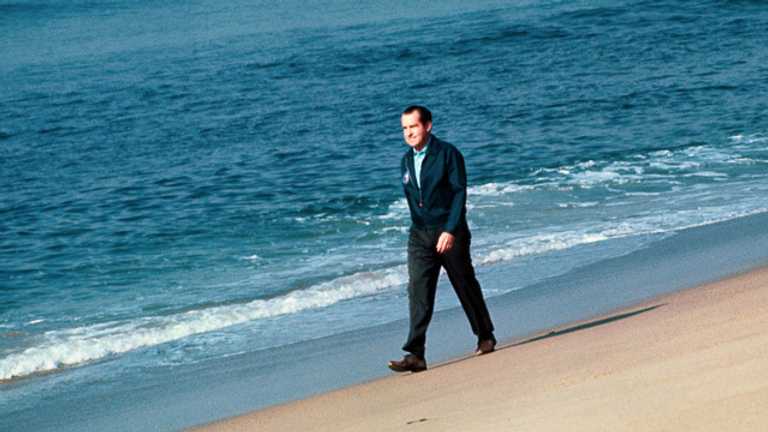
I held onto this defective view of the military for decades, and it got in the way of an otherwise wonderful 1994 interview I did with Jock Sutherland, who in a six-month period won the ’69 SURFER Poll, filmed his top-billed role in Pacific Vibrations, and joined the Army—my vote for the most mindblowing trifecta in surf history. The military didn’t pan out for Jock (injured during basic training and sent home with an honorable discharge just before shipping out to Vietnam as a field wire repairman; a godsend, as he later put it), but that doesn’t change the fact that he joined because the Army offered a way forward career-wise, while surfing, at that point, even for the sport’s most charismatic and high-profile figure, did not. Case closed, right? No, I pushed back and questioned Jock’s choice, during our conversation and in the subsequent article, and that was me still acting the self-righteous lib who never had to make a life choice as hard as the one Jock made in ’69. The same can be said, with as many variations as there are enlistees, for tens of thousands of other surf-raised military personnel over the decades. Some of you guys, like I said above, wrote in last week to say how it’s worked out—and by and large it has worked out well.
The runner-up most mindblowing surfer-joins-military event happened in 1988, when writer and media personality Matt George took a run at the Navy SEALs. As with Jock, it didn’t work out (again, injury and honorable discharge), and you can read the whole wild story right here, as told in Matt’s own salt-and-swagger Gidget Goes Géricault style.
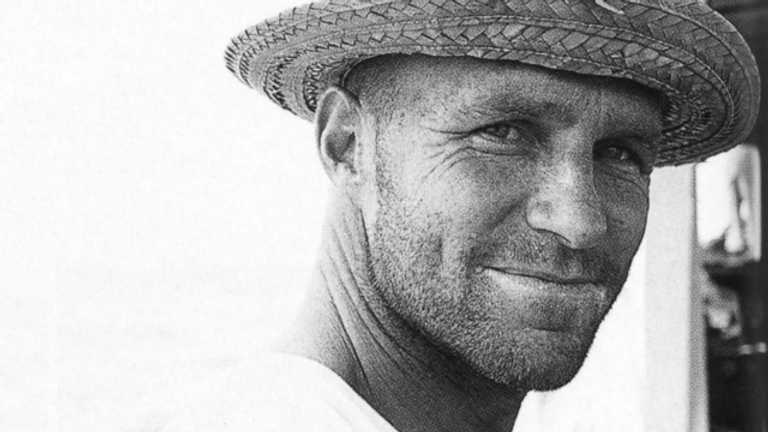
With Jock and Matt and a majority of you current- or ex-military who reached out last week, a common denominator—the common denominator—is having a family member, usually a father, who was in the service. Jock’s dad was a Coast Guard officer who served in World War II and Korea. Matt’s was a WWII Navy pilot. The older I get, the more time I have to think about my relationship with my own father (alive and well at 94; as familiar as my own breath yet still mysterious), and the more time I have with my own son (13 and a nicely upgraded version of me in the ways that matter most), the more obvious it is that, for sons, half the deal, or more than half, is shaped and warped by the father. This doesn’t mean Sutherland and George were destined to join the military. “But when you’re a kid and your dad comes home in a uniform,” as Matt recalled years later, “that’s huge. You cannot underestimate how important that is.”
Taking it a little further, the military father, consciously or not, will likely pass down a military-influenced view on life goals and the definition of achievement. Sutherland later said that the second reason for joining the Army, apart from the career options it might provide, was to prove himself. “It was a kind of a challenging thing for me. I figured I was a local boy, bred in the country, pretty tough, and I wanted to see how I’d do against the VC.”
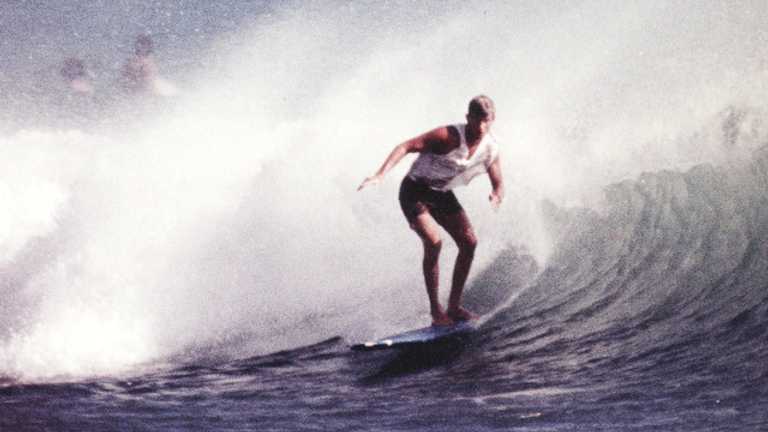
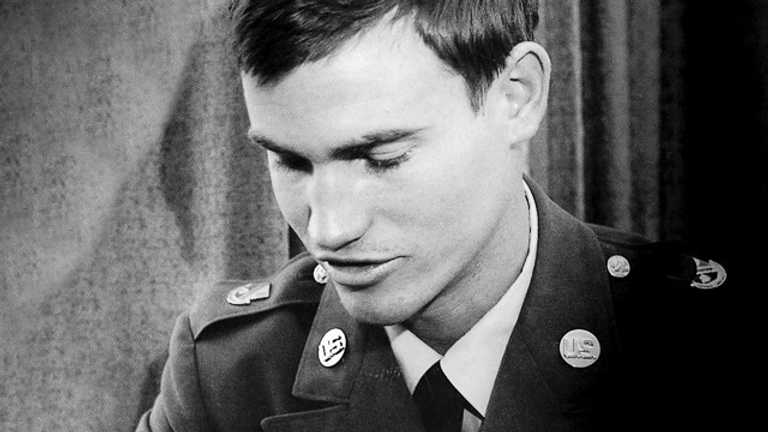
Matt George, same idea but played on trumpets and a flaming gong: “I’d always had a fascination with military men [and] fantasies about being at war. I started thinking about man at his ultimate and, in my opinion, man is at his absolute primal ultimate in war. I was [ready] to sacrifice everything I’d done up to that point just for a chance at being one of those ultimate warriors.”
Sutherland and George were both greatly relieved at getting the chance to take an early leave from service. Jock’s views on the Vietnam war changed during his two years in the service and the desire to fight, in turn, went out of him. When Matt washed out of the SEAL program, he realized that the regular Navy wasn’t for him.
But neither has regrets about joining in the first place. Sometimes you charge, sometimes you retreat. Nobody moves forward in a straight line. Or as Sun Tzu put it, "He will win who knows when to fight and when not to fight."
Thanks for reading, and see you next week.
Matt
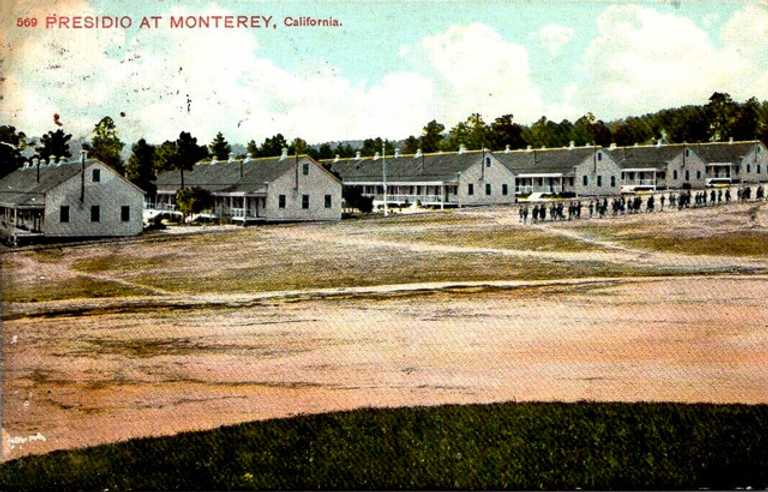
PS: After basic training, Jock was stationed at Monterey Presidio, less than an hour south of Santa Cruz. From my 1994 TSJ-Sutherland profile:
In the Fall of 1971, 11-year-old Matt George was dropped off at Steamer Lane, while his brother Sam and a friend went to get milk and donuts. The surf was small, and the wind was cold out of the east. “I was standing with my hands in my pockets, shivering,” George recalls, “and I look to my left and here comes Jock Sutherland, walking towards me, with a shaved head, wearing a long john with the ankle zippers unzipped. He stopped next to me and looked down, and I was almost dizzy—just the full-on brush with greatness. He looked out at the surf, looked back at me and shrugged, so I shrugged, then he climbed down the cliff and paddled out. The first wave he caught was maybe shoulder-high, and he did a fade, turned, drifted up into the pocket, and did a side-slip. Then here comes the end section and he did, I swear, in 1971, the first floater I’d ever seen. That was the only wave he rode. Next thing I knew he was back up the cliff and about to walk past me, and I said the only possible thing I could say, the classic Santa Cruz opening line: ‘What’s the water like?’ He shuddered and went, ‘Whew,’ and walked past. Two minutes later Sam came back. I said, ‘Yeah, you know, I was just rapping with Jock Sutherland’.”
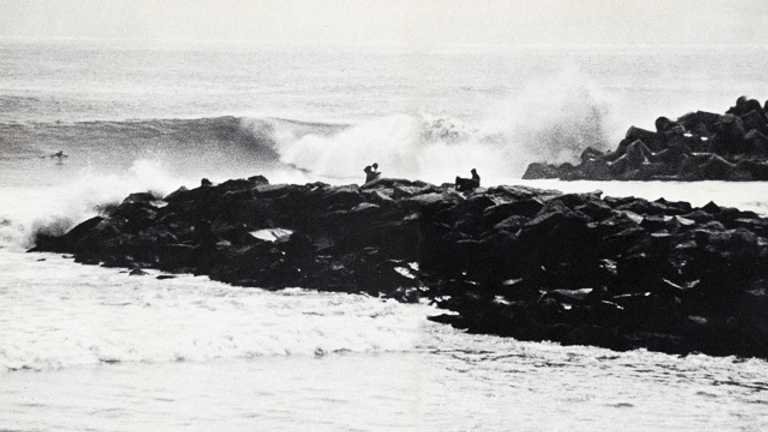
PPS: In Deep: the Collected Surf Writings, Matt’s first book, just came out. I’m waiting for my copy to arrive, and who knows what he chose for publication, but I’ll tease it with “Crossroads,” a scolding 1988 editorial on how pro surfing lost its way, and yes it holds up very well here in 2023 (if you watched the Surf Ranch Pro this weekend you’re a bigger glutton for punishment than I am), and “The Saga of Harbor Bill,” in which Matt both outs and glorifies Bill Mulcoy, the legendary Clyde Barrow of Santa Cruz Harbormouth. I worked at SURFER during this period and was Matt’s editor, and he was a joy and inspiration to work with. “Crossroads” and “Harbor Bill” both got a huge response from the readership.
PPPS: “Beyond the Great Wall: the First Surfers in China” will almost certainly be an In Deep selection, as the trip itself was surf-historical and the photos, taken by the late great Warren Bolster, are fantastic. But this is not Matt’s best work—and he knew it even before he turned the article in. The long-planned China trip was much stranger and bleaker than what we get in the story, partly having to do with Bolster having one of his periodic mental breakdowns while in Beijing, but I think more because China itself was both overwhelming and underwhelming at the same time. Terrible surf, worse food, endless travel, and a population still mostly in zombie mode after the Cultural Revolution. Matt George, to all of us and especially to himself, was larger than life—but China was bigger than Matt. I’m 95% sure Matt hit the Great Wall, bounced off, and decided to become a Navy SEAL.
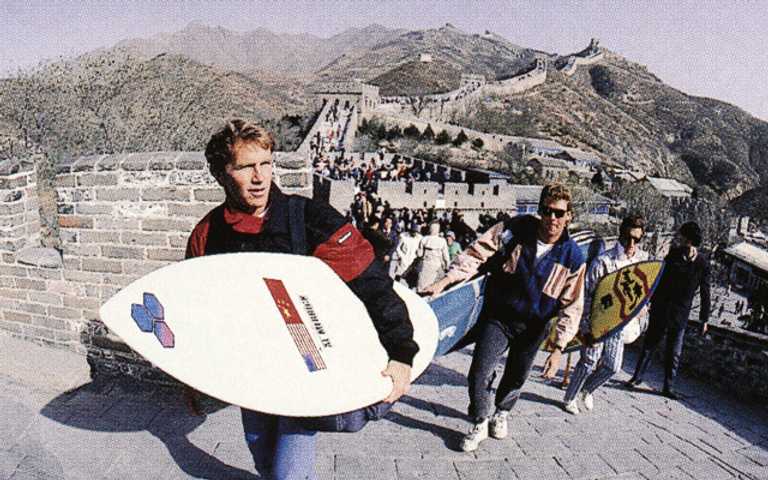
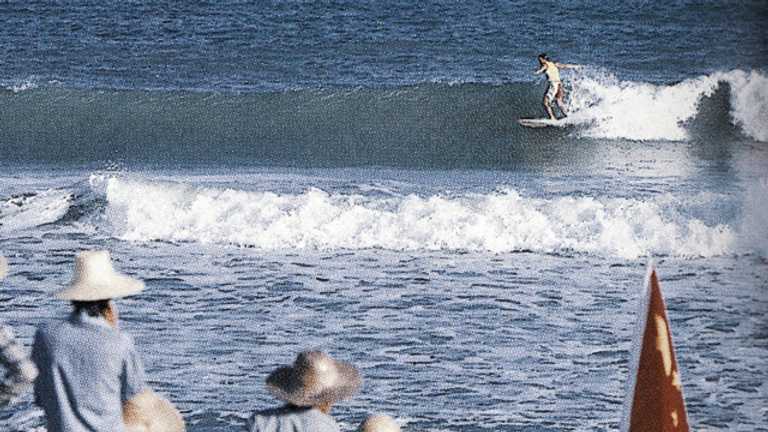
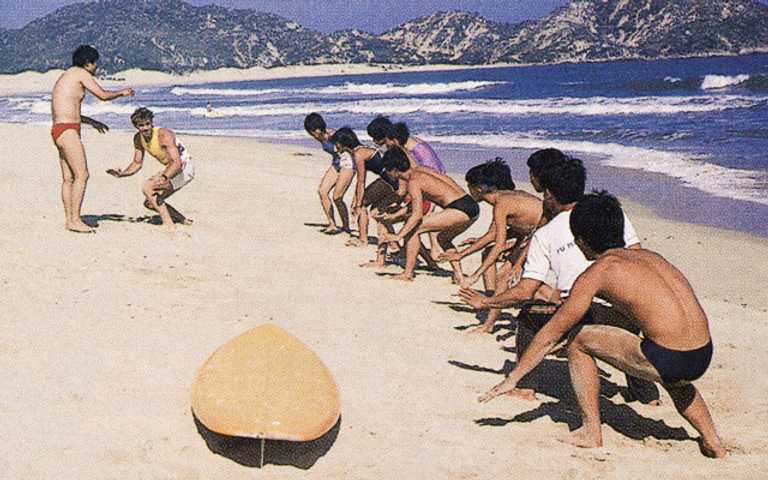
[Photo grid, clockwise from top left: Matt George on the beach in China; Rell Sunn surfing China; Jock Sutherland, 1970, photo by Art Brewer; Santa Cruz Harbor; tattooed Navy sailor, 1947; Bill Murray and cast from Stripes. Richard Nixon on the beach at Cotton’s Point, 1971. Matt George by Tom Servais. Jock Sutherland at Ala Moana, 1968, by Col. Al Benson. Jock Sutherland, 1970, by Drew Kampion. Bill Mulcoy paddling out at Santa Cruz Harbor, 1985. Matt George on the Great Wall. Matt surfing Spring Bay, Hainan Island. Matt giving surf lessons at Spring Bay. All China photos by Warren Bolster.]